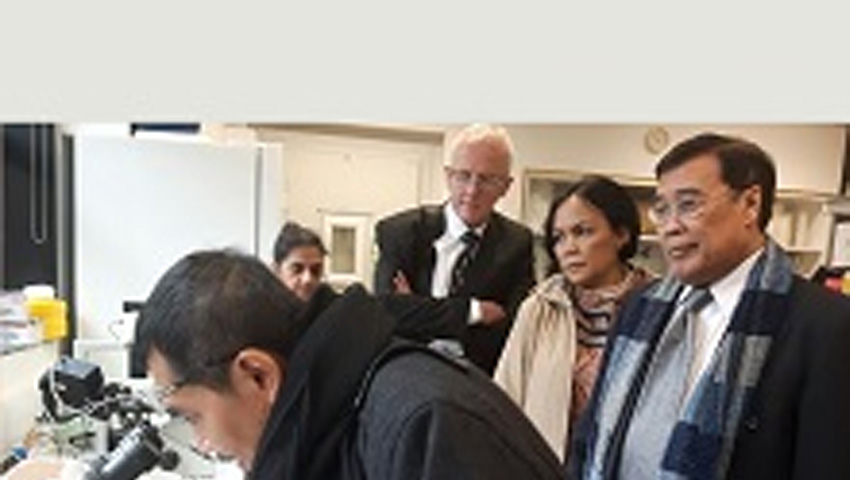A science collaboration between Australia and Indonesia is one step closer after a high-level delegation visited Melbourne and Canberra, Australia, between 20 and 24 June 2016. Led by the Indonesian Academy of Science (AIPI) and the Ministry of Research and Higher Education (MoRHE), the delegation included the President of AIPI, Prof Sangkot Marzuki, the Director General of MoRHE, M Dimyati, the Executive Director of the Indonesian Science Fund, J W Saputro, and the President of the Indonesian Academy of Young Scientists (ALMI), Prof Jamaluddin Jompa. The visit was supported by the Knowledge Sector Initiative (KSI) and the Australian Government through the Department of Foreign Affairs and Trade (DFAT).
The delegation met with a range of Australian government, university and research stakeholders and engaged in high-level policy dialogue to advance Indonesia's domestic research policy settings. Letters of Intent for academic collaboration were signed between MoRHE and the University of Melbourne, and the Australian National University (ANU) with the scope of cooperation including collaborative fellowships and mobility schemes, enhancing international publications and intellectual property rights, and inviting philanthropic organizations in Australia to support research in Indonesia.
An important objective of the visit was to prepare the groundwork for establishing a bilateral Indonesia-Australia Science Symposium to be held in Canberra in November 2016. The symposium will work towards enhancing bilateral collaboration in research, technology and international exchange. It will also support the development of both Australia's and Indonesia's own research capacity by promoting knowledge sharing between peers and research collaboration across a range of sectors.
Prof Michael Barker from the Australian Academy of Science said the November symposium would be a significant event that would begin to address constraints in both countries around the of lack of connectivity and capacity in science. This project should have mutual benefit and provide space for both countries to learn and link government programs with research.
Members of the delegation met with the consortium members, ANU and Nossal Institute, to discuss a range of activities to support the improvement of research quality in Indonesia. Consortium members discussed the provision of peer reviewers from Nossal and ANU, the allocation of resources to integrate gender and social inclusion and the development of joint manuscript clinics.
In partnership with DFAT, KSI will continue to support the preparation of the Australia Indonesia Science Symposium in November, and provide broader support for the improvement of research quality and innovation in Indonesia






